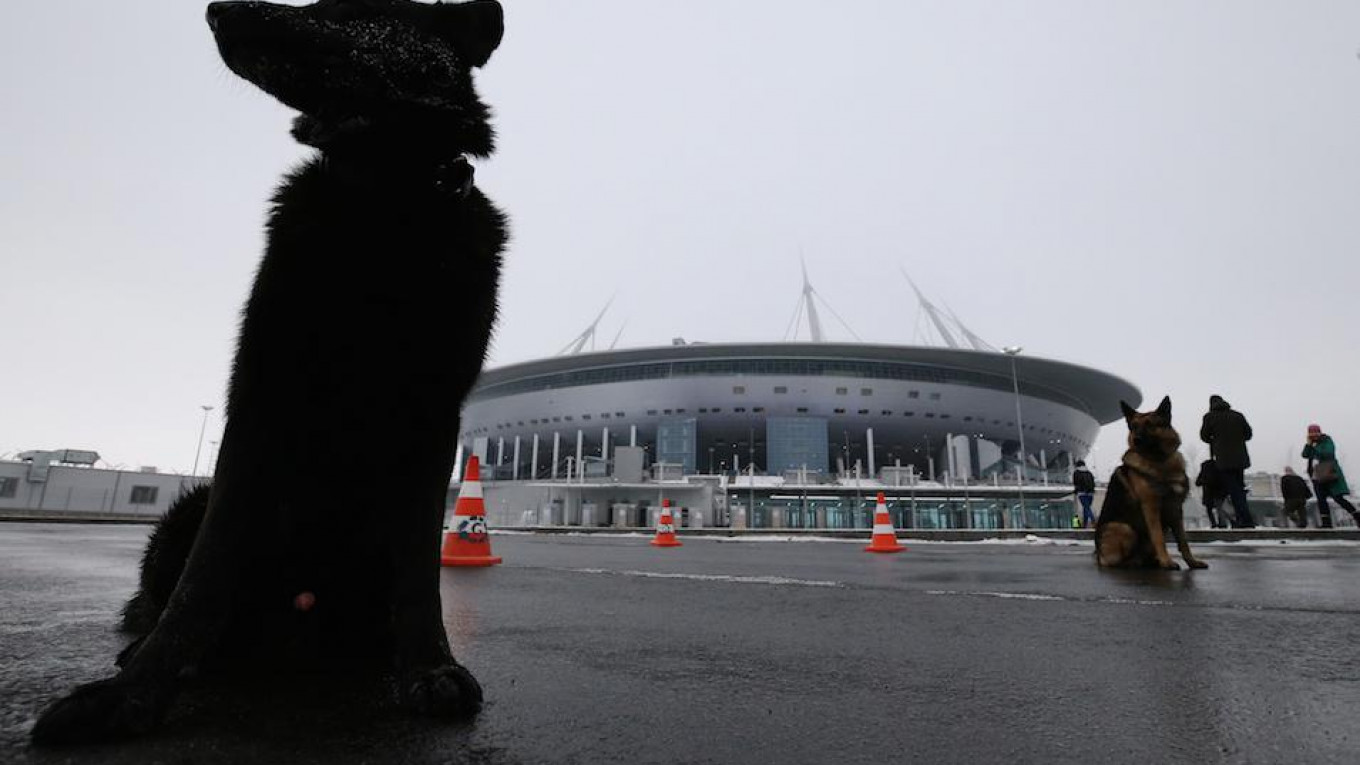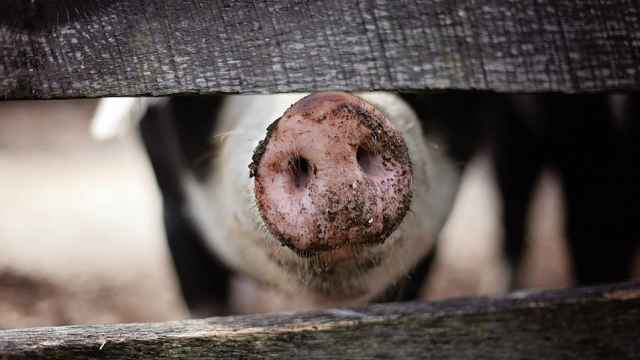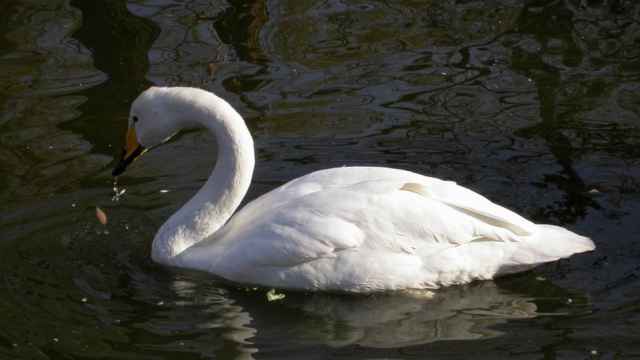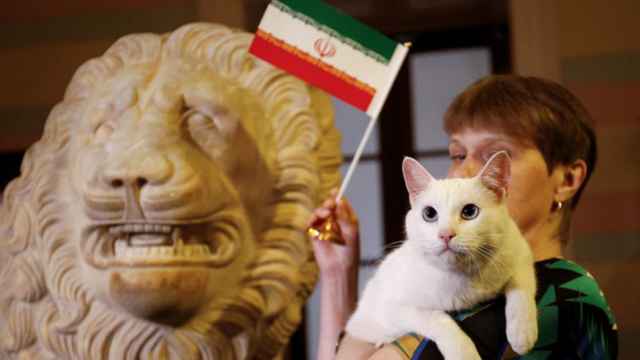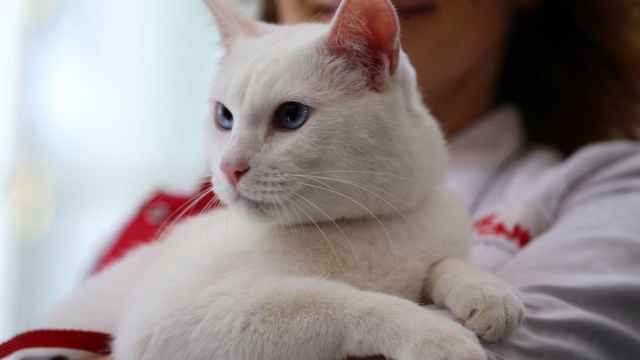As Larisa Dudaryonok arrived home one night in November, she was greeted by her dog Ryzhka at her car. Down the street, a man she strained to make out in the dark was watching.
Dudaryonok, who runs an animal shelter in the southern port city of Rostov-on-Don, didn’t pay the stranger much attention. But when the 15 dogs she was keeping temporarily in her backyard began barking loudly an hour later, she knew something was wrong and rushed outside.
“Ryzhka was convulsing on the ground,” she recalled during a recent phone interview. The dog, Dudaryonok suspects, was fed isoniazid, a tuberculosis drug that has been used to poison dogs. If Dudaryonok hadn’t had the antidote, Ryzhka would likely not have made it. “She’s lucky she survived.”
Russia’s culling of stray animals gained international infamy when photos of their carcasses went viral ahead of the 2014 Winter Olympics in Sochi. Now, as the country prepares to welcome large numbers of visitors for the FIFA World Cup this summer, activists say the practice is being ratcheted up once again.
In Rostov-on-Don, one of the tournament’s 11 host cities, Dudaryonok said she started to see corpses in full public view more frequently in the fall of 2016. Then, at the end of last year, there was an uptick in government tenders for the capture of strays on the government’s public portal. Activists rang the alarm.
A petition addressed to President Vladimir Putin in January urged Russia to “stop the awful practice our country has of killing homeless animals in the run-up to international sporting events.” It has since garnered more than 1.8 million signatures from all over the world.
In a statement to The Moscow Times, FIFA and Russia’s Local Organizing Committee said they “in no way condone cruel treatment of wild and stray animals.” They added that they were in contact with host cities and expected them to ensure animal welfare.
Russian officials have argued that culling strays is a necessary safety measure. Recently, Sports Minister Pavel Kolobkov cited the need to “minimize ecological risks” for visitors to the World Cup, and promised that the removal of strays would be carried out “humanely.”
After meeting with activists earlier this year, Kolobkov and Deputy Prime Minister Vitaly Mutko ordered host cities to set up shelters to house strays. Mutko also assured activists that the killings would stop. But animal rights defenders say that without proper legal mechanisms, it is a hollow statement.
Although Russia does have an article in its Criminal Code outlawing animal cruelty, activists argue it is toothless. Even after two teenagers in Khabarovsk in 2016 posted photos on the internet of puppies and kittens they had dismembered — an incident which was met with national outrage — they escaped punishment under the law.
What makes the problem even more insidious is that it is left up to each municipality to decide what to do with homeless animals, says Mark Sokolovsky, an animal rights defender based in the Sverdlovsk region.
Moreover, the industry of killing animals is lucrative. “There is a lot of money in these contracts, which are often awarded to state-run companies,” Vladimir Burmatov, the head of the State Duma’s ecology and environmental protection committee, said in a phone interview. “And because these matters are governed by individual municipalities, there is nothing a federal official can do.”
Yekaterina Dmitrieva, who runs the non-profit Urban Animal Protection Fund, says the tenders in the host cities, which she estimates are home to around 100,000 stray cats and dogs, total $1.8 million. And because companies are paid per animal, they are incentivized to capture or kill as many as possible.
Yekaterinburg, another World Cup host city, paid a municipal waste company more than $533,000 in December to catch 4,600 dogs, says Sokolovsky. According to the contract reviewed by The Moscow Times, 4,050 of the dogs are to be held for 10 to 14 days before being euthanized. (The remainder are meant to be released.)
Invoices dated Feb. 22 and March 23 indicate that the company has so far caught at least 900 dogs, 654 of which have been killed.
In December, the mayor of Sochi, the locus of the killings ahead of the Winter Olympics, contended that “no [poisoned dart] shootings have ever taken place or are taking place.”
But one tender issued by city officials there at the end of that month emphasizes that “the specialist who immobilizes the animal must ensure its death.” And invoices reviewed by The Moscow Times from a private company, Basya Service, from March list 58 animals as having been killed.
Reached by phone, Alexei Sorokin, the head of Basya Service, a company that specializes in animal and waste collection, dismissed concerns that his company’s work was inhumane.
“We could sit here sniffling all day, but I am working within the framework of our constitution,” he said. “Why are we worrying about dogs when we should be worried about people?”
Still, Burmatov, the Duma deputy, was optimistic that, in the near future, Russia will stop killing homeless animals. He pointed to St. Petersburg, which enacted a law three years ago prohibiting the practice. The city has since launched a program to vaccinate and sterilize strays before releasing them back onto the street.
In the absence of widespread adoption shelters, activists say this is the most humane practice, reducing both the overall numbers of strays and those that are aggressive and disease-carrying. They also argue it is more cost-effective.
Burmatov also noted that a new law standardizing how municipalities across the country treat homeless animals has passed the second reading in the State Duma. After its third reading, the legislation will land on the desk of the president.
Activists who spoke with The Moscow Times, though, doubted that the law will come into force any time soon.
“That law was written in 2000 when Putin first came into office and was tabled until 2007, then 2011, then again until 2017,” Dmitrieva of the Urban Animal Protection Fund said. “And right before the third reading was supposed to happen, someone tabled it yet again.”
Unfortunately for Russia’s strays, it may be the only hope they have. “Until then,” Dmitrieva said, “we’ll keep swimming in their blood.”
A Message from The Moscow Times:
Dear readers,
We are facing unprecedented challenges. Russia's Prosecutor General's Office has designated The Moscow Times as an "undesirable" organization, criminalizing our work and putting our staff at risk of prosecution. This follows our earlier unjust labeling as a "foreign agent."
These actions are direct attempts to silence independent journalism in Russia. The authorities claim our work "discredits the decisions of the Russian leadership." We see things differently: we strive to provide accurate, unbiased reporting on Russia.
We, the journalists of The Moscow Times, refuse to be silenced. But to continue our work, we need your help.
Your support, no matter how small, makes a world of difference. If you can, please support us monthly starting from just $2. It's quick to set up, and every contribution makes a significant impact.
By supporting The Moscow Times, you're defending open, independent journalism in the face of repression. Thank you for standing with us.
Remind me later.



